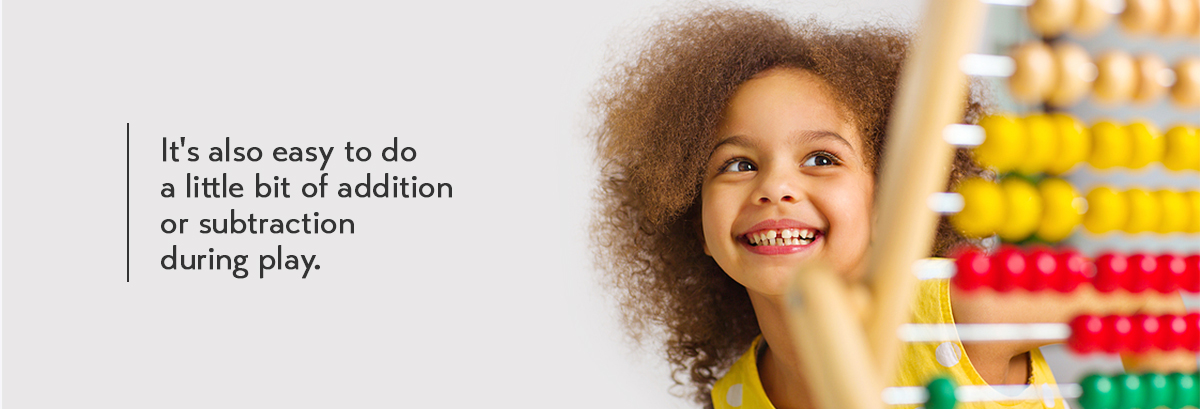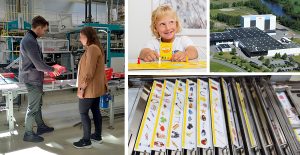
With many games, it’s easy to encourage even a younger child to use mathematical thinking. Play with building blocks that have different shapes; search for Lego pieces of a certain colour; build tall and short block towers; count your child’s fingers and toes; or move forward according to the number on a die.
If your child is naturally curious, you can gently introduce them to the wonderful world of maths, as it develops their thinking skills and help them understand the world around them.
The things the child has learned before form the basis for learning new things. In order to maintain an interest in mathematics, it is important that the child has a solid foundation and moves forward step by step. Small experiences of success encourage them to learn more!

At first, a child learns to connect a certain amount of things to a certain word, like “one”, “two”, “three”, etc. Once they use those words to count, they are soon able to connect the amount to the right number, too.
- Games, where the players move forward according to the pips on a die, support these skills.
- Try counting the number of steps in a staircase, the number of cars in car park or the petals on a flower.
It’s also easy to do a little bit of addition or subtraction during play.
- I have 1 Lego piece, and I get 2 more, so I have 3 Lego pieces. Or, I have 3 peas, I eat 1 of them, so I have 2 peas.
In addition to numbers and amounts, mathematical thinking also means comparing, organising and recognising shapes as well as the concepts of location.
- In everyday situations, you can compare amounts. “Which bowl has more strawberries? Do they now have the same number of strawberries?”
- Tidying up your child’s room in the evening can turn into a game when you combine with a little bit of organising. “Let’s first collect all the soft things, and let’s put all the red things over here.”
- A child’s vocabulary and thinking develop when the grown-ups use the correct terms. Instead of saying “Could you bring me that block over there?”, you could say, “Could you pass me the round block that’s behind the box?”
In childhood, you build the foundation for mathematical thinking, which promotes a positive attitude to mathematics even when the child grows older.





